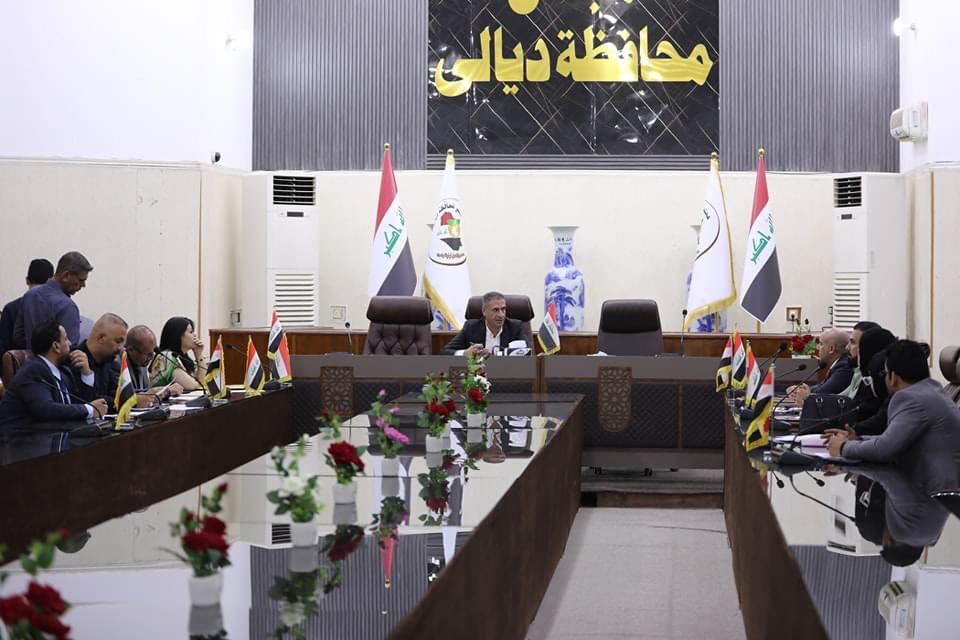The Diyala provincial council has extended the deadline for submitting resumes for the positions of mayors for districts and sub-districts for an additional month due to the lack of information on candidates for most of the positions.
The decision was reached during the latest council meeting held on Tuesday, September 17, with 10 members present and chaired by Saleem al-Tamimi, Deputy Speaker of the council. The deadline for receiving CVs of candidates for heads of administrative units was extended by one month.
Previously, the provincial council had opened nominations for the position of head of the administrative units of Diyala for a 30-day period, with the deadline for CV submissions set for September 19.
"The extension of the deadline for submitting CVs for the positions of governors and district directors is due to the fact that candidate files have not been received from several districts, and some are delayed. This extension will allow us to thoroughly review the CVs," al-Tamimi said in a press conference.
"The selection of heads of administrative units will be based on administrative and scientific competence, as well as professional standards," he added. "The rights of the Kurds will be preserved, as we are all representatives of all segments, ethnicities, and sects of Diyala Province. We do not accept any commment about their potential exposure to injustice in terms of positions or other matters, as we represent them all."
Diyala Provincial Council consists of 15 seats, four of which are allocated to women. Diyala Governorate is home to 1.6 million people, 90,000 of whom live in the center of the Khanaqin dominantly Kurdish district, according to estimates by the Central Bureau of Statistics for 2019.
According to the Law on Unorganized Provinces in a Region No. 21 of 2008 – as amended, the heads of administrative units will continue to perform their duties until new replacements are elected by the provincial council after the council elections.
Fares Muzahim al-Jibouri, a member of the Diyala provincial council, mentioned that the delay in resolving the issue of the heads of administrative units will not have a significant impact as the positions are currently being managed by proxies.
Al-Jibouri emphasized there are other issues that have priority such as the importance of recruiting over 7,000 individuals and reviewing and auditing the CVs of candidates for the head of administrative units.
Selection criteria will be based on skills, with candidates required to be at least 30 years old, hold a bachelor's degree, residents of the province, not a member of the military or security forces at the time of candidacy, and have at least 10 years’ experience.
"The appointment of the heads of the administrative units will be based on administrative, scientific, and professional criteria," Tamimi stated during a press conference.
Previously, Kurds held positions such as deputy governor and mayors, particularly in Khanaqin, a disputed area of Diyala.
Diyala province consists of six districts and 15 sub-districts, including various disputed areas under Article 140 of the Iraqi constitution, such as Khanaqin district.
The 15 members of the Diyala Council were first divided into two teams: The Team of Eight and the Team of Seven. The two teams include a mixture of Shiite and Sunni parties seeking to secure the largest number of senior positions in the local government in their favor.
Following the formation of a new coalition called the Peace and Stability Coalition, consisting of five factions including Asaib Ahl al-Haq AAH led by hardliner Qais al-Khaz’ali, the State of Law, Sovereignty, Determination, Foundation, and a member of Badr, tensions have risen.
The new coalition had nine out of 15 members, excluding the PUK, which did not participate. The other parties were the same ones that held an emergency meeting in mid August at the Rashid Hotel in Baghdad, resulting in the election of the council speaker, governor, and deputies after months of controversy.
The Kurdish bloc, with one representative in the council, also boycotted sessions in protest of committee distribution before returning under an agreement.
*This story has been produced as part of the 'Budget is Your Right' initiative, with support from the National Democratic Institute (NDI).





